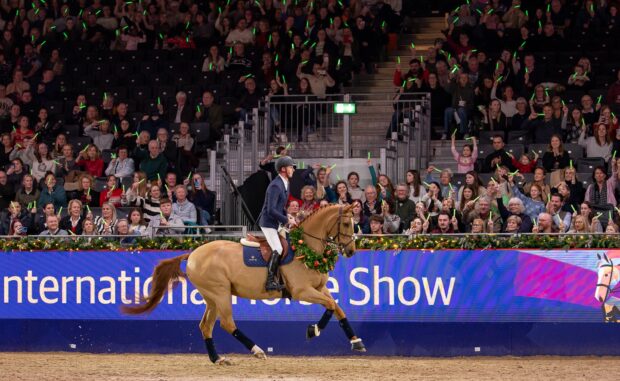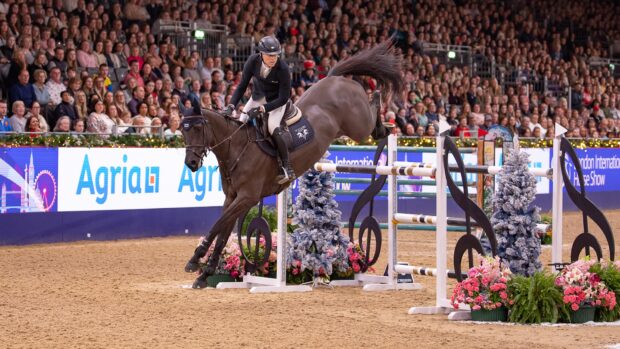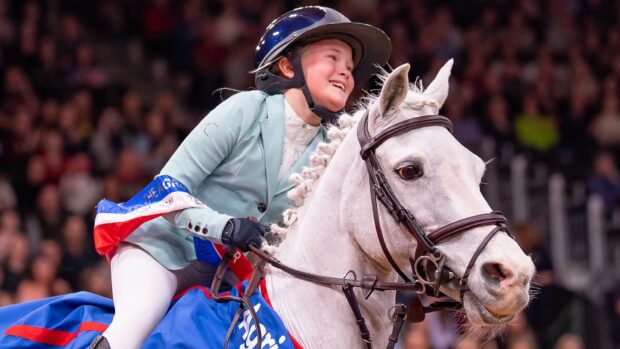Young riders, breeders and nations risk being priced out of elite showjumping unless the right balance is found between cost and reward.
Extra “fantasy fees” being added on top of riders’ bills at shows, how to balance out big discrepancies in prize money worldwide, competitors paying their way into shows (“pay cards”), and spiralling costs faced by organisers headlined a debate on jumping show costs at the FEI Sports Forum (24–25 April).
Riders, owners, officials and organisers thrashed out ideas for how to secure a financially viable future, without top-level showjumping drifting away from a meritocracy to becoming a sport for “billionaire families”.
The situation is complicated. Entry fees in the US work on a different model to Europe, owing to different markets and business models. Inflation and exchange rates mean prize money rules set out in 2012 are resulting in sums differing from country to country particularly at five-star level – and the FEI proposing to rebalance the situation.
As part of this proposed overhaul, the FEI suggested introducing lower-limit prize money at one-star – and while this would be good news for some, concerns were raised over damage this could do in nations where the sport is developing.
Add to that the rising costs faced by everyone, and the answer is not straightforward. FEI secretary general Sabrina Ibáñez told the forum that the FEI will create a cross-industry working group to take discussions further and find ways forward.
“From the side of the organisers, if you look at the last three, four years, it’s getting more and more financially challenging,” said Peter Bollen, Equestrian Organisers president.
He warned that stand-alone shows “with high-quality sport and a lot of public are suffering and even disappearing”. On the other hand, Mr Bollen noted, fixed infrastructure venues running multiple shows that are less targeted towards spectators are doing “pretty well”.
“Where do we want to go with our sport in the future?” he asked. “Organisers, owners, riders – we are all in this together, we are all passionate about the sport and we’ve got to find the solution together.”
International Jumping Riders Club (IJRC) vice-president François Mathy Jr asked that a “reasonable” answer is found for the “never-ending story” of extras – such as parking, muck removal and arena charges – that can be added to riders’ bills at a show.
“The riders need the shows, the shows need the riders. Most of the time the owners end up paying the the end bill and a lot of riders are also owners so we completely share the same concerns,” he said.
Jumping Owners Club chairman Dominique Mégret agreed that costs are important as shows “have to be profitable and owners and riders have to make some money in the end”.
“We have to have a view on what we want our sport to be in the 10 years to come,” he said.
“How would you be organised in such a way that merit will come before money and that the young riders, young owners, the future of our sport could continue to do the sport at a very high level. That is needed from all of us.”
The IJRC issued a statement following the debate, in which the organisation said it “believes the entire industry has a moral obligation to keep costs as low as possible”.
In the statement, Mr Mathy added: “Our objective is to keep our sport accessible for young and talented riders. A compromise must be reached in order to stop the race of the imaginative extra cost that some events put on the riders’ bill.”
The IJRC is also asking the FEI to reconsider how unused places at CSIs and wild cards are allocated “in the wake of anecdotal evidence that more last-minute entries are finding their way to ‘pay cards’”.
IJRC director Eleonora Ottaviani reiterated caution over one global system for prize money and entry fees.
“One must also take into account that in addition to entry fees established by FEI regulations, in Europe taxes are increasingly often added that do not comply with FEI rules, such as pay cards, tables and administrative tax,” she said.
“Such fees affect above all young riders, breeders and up-and-coming athletes who deserve to be able to afford to compete in sport that respects meritocracy. The increase of the entry fee and of the costs, which are already expensive for central and southern Europe, will become unaffordable for the whole of eastern Europe, where the sport is currently undergoing promising development.”
You might also be interested in:

Subscribe to Horse & Hound magazine today – and enjoy unlimited website access all year round

Fresh details as Paris gears up for equestrian events at 2024 Olympics

Nick Skelton: ‘We don’t abuse our horses – we’ve nothing to hide’

Graham Fletcher: Why betting could be profitable for showjumping
Horse & Hound magazine, out every Thursday, is packed with all the latest news and reports, as well as interviews, specials, nostalgia, vet and training advice. Find how you can enjoy the magazine delivered to your door every week, plus options to upgrade your subscription to access our online service that brings you breaking news and reports as well as other benefits.




